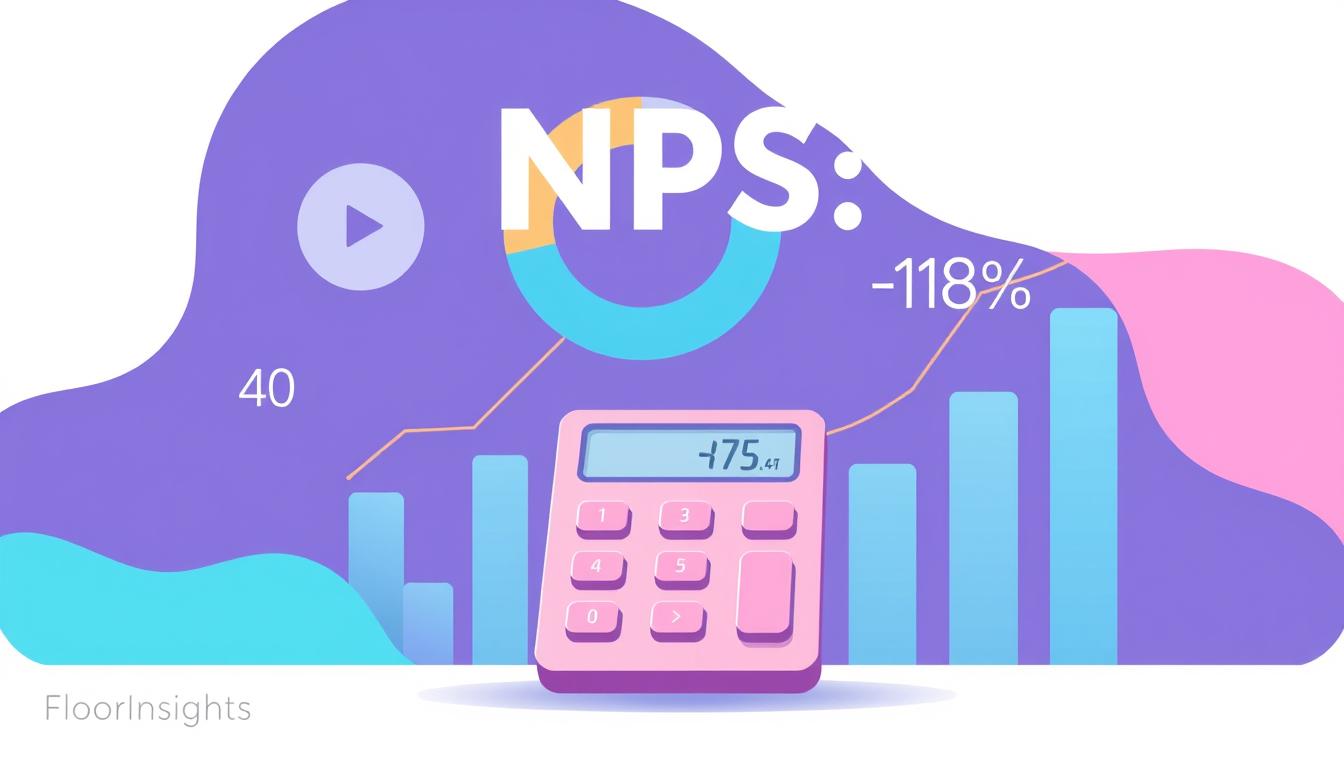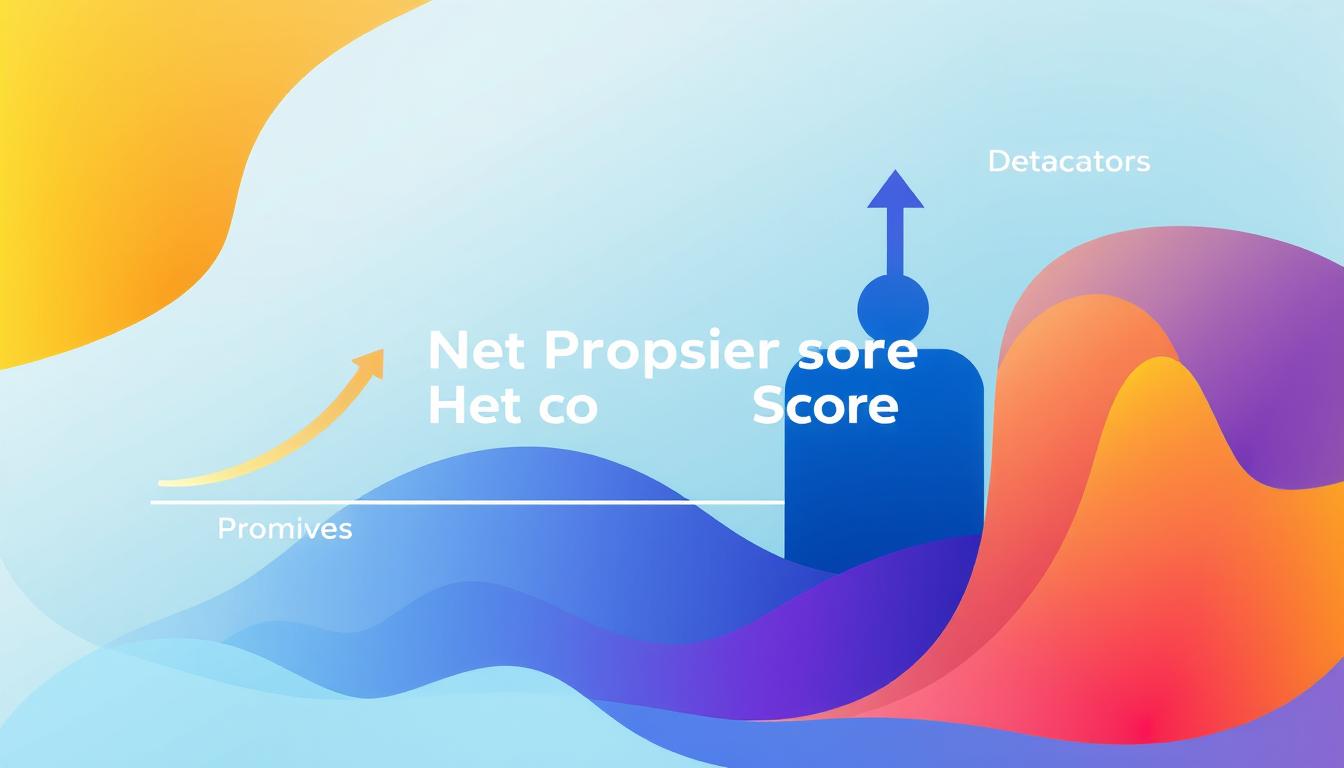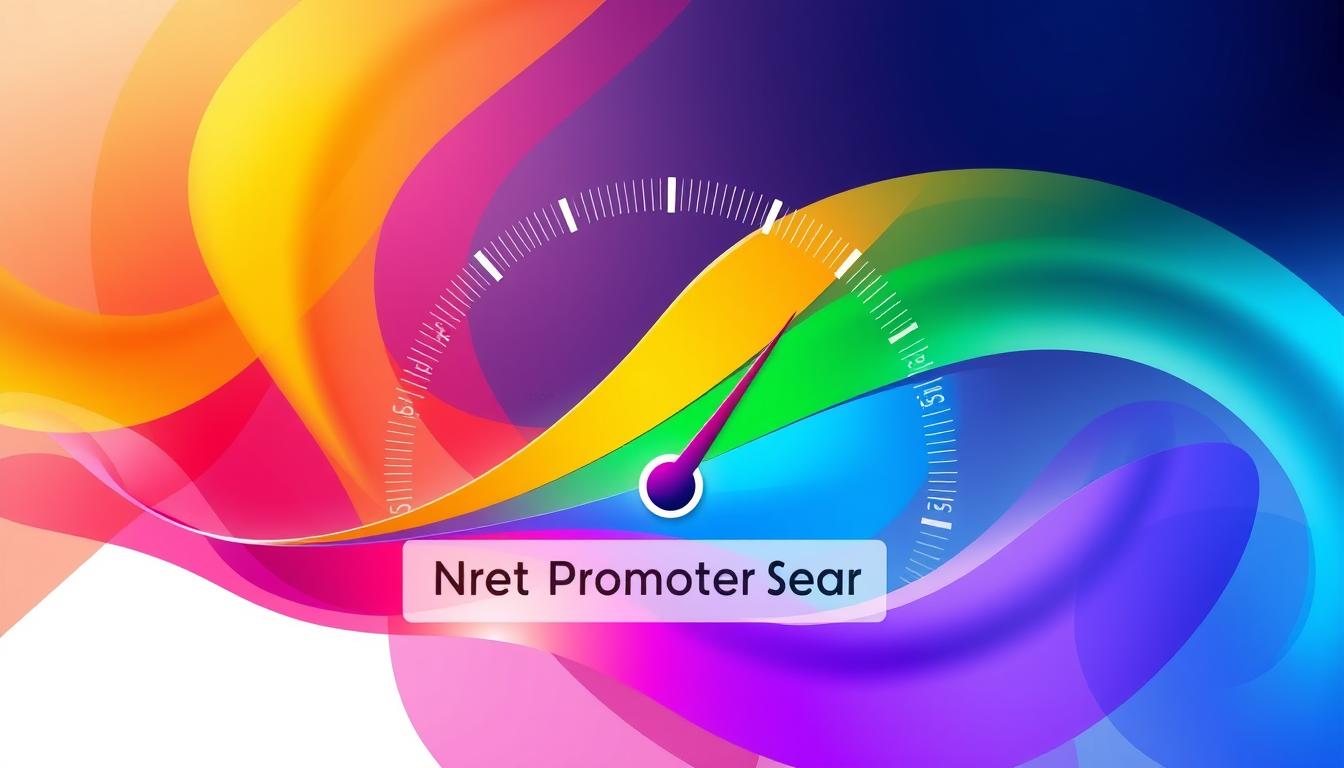In the highly competitive hospitality industry, delivering an exceptional guest experience is crucial for driving customer loyalty, brand advocacy, and long-term business growth. One powerful metric that can help hoteliers and hospitality providers in India measure, analyze, and improve their guest experience is the Net Promoter Score (NPS). This article explores how the effective implementation of NPS can transform the guest experience and propel the success of hospitality businesses in the country.
Key Takeaways
- NPS is a reliable metric for measuring guest satisfaction and loyalty in the hospitality industry.
- Implementing NPS can help hospitality businesses in India identify and address customer pain points, enhancing the overall guest experience.
- By leveraging NPS data, hoteliers can foster brand advocacy and drive long-term customer retention.
- Integrating NPS into a comprehensive customer experience (CX) strategy can lead to significant improvements in guest satisfaction and business growth.
- Regularly collecting and analyzing NPS feedback can provide valuable insights to help hospitality providers in India continuously improve their services and stay ahead of the competition.
Understanding the Net Promoter Score
The Net Promoter Score (NPS) is a widely-used customer loyalty metric that measures the willingness of customers to recommend a company’s products or services to others. In the hospitality industry, NPS provides valuable insights into guest satisfaction, loyalty, and their likelihood of becoming brand advocates.
What is the Net Promoter Score?
The Net Promoter Score is calculated based on a simple question: “How likely are you to recommend our company to a friend or colleague?” Customers respond on a scale of 0 to 10, where 0 represents “Not at all likely” and 10 represents “Extremely likely.” Customers who respond with a 9 or 10 are considered “Promoters,” those who respond with a 7 or 8 are considered “Passives,” and those who respond with a 0 to 6 are considered “Detractors.
The Importance of NPS in Hospitality
In the hospitality industry, NPS is crucial for understanding guest satisfaction and their willingness to return or recommend the hotel, resort, or other hospitality service. A high NPS indicates that guests are highly satisfied and loyal, which can lead to increased retention rates and brand advocacy. Conversely, a low NPS suggests areas for improvement and the need to address the concerns of dissatisfied guests, or “Detractors.”
| NPS Category | Score Range | Characteristics |
|---|---|---|
| Promoters | 9-10 | Highly satisfied and loyal guests who are likely to become brand advocates, driving word-of-mouth referrals and repeat business. |
| Passives | 7-8 | Satisfied but unenthusiastic guests who are vulnerable to competitors’ offers. |
| Detractors | 0-6 | Unsatisfied guests who are likely to spread negative word-of-mouth and may churn, impacting the hotel’s reputation and loyalty index. |
By understanding their Net Promoter Score, hospitality providers can identify areas for improvement, enhance guest experiences, and drive long-term business growth through increased loyalty and brand advocacy.
Measuring Guest Satisfaction with NPS
Gathering customer feedback through NPS (Net Promoter Score) surveys is the first step in understanding guest satisfaction and loyalty within the hospitality industry. By asking guests a simple question – “How likely are you to recommend our hotel/resort to a friend or colleague?” – businesses can obtain valuable insights into their guest experience.
Guests respond to this question on a scale of 0 to 10, with 0 being “Not at all likely” and 10 being “Extremely likely.” This data is then used to calculate the Net Promoter Score, a reliable indicator of guest satisfaction and loyalty that can help hospitality businesses identify areas for improvement and enhance their overall service quality.
| Score Range | Customer Type | Implication |
|---|---|---|
| 9-10 | Promoters | Loyal, enthusiastic customers who are likely to refer others |
| 7-8 | Passives | Satisfied but unenthusiastic customers who are vulnerable to competitors |
| 0-6 | Detractors | Unhappy customers who can damage a brand through negative word-of-mouth |
By analyzing the distribution of responses across these three categories – Promoters, Passives, and Detractors – hospitality businesses can gain a comprehensive understanding of their guest satisfaction levels and develop targeted strategies to address any areas of concern.
Implementing NPS surveys as part of a comprehensive customer feedback strategy allows hospitality businesses to stay attuned to the evolving needs and preferences of their guests, enabling them to deliver an exceptional experience that fosters long-term loyalty and brand advocacy.
Interpreting NPS Results
Analyzing the Net Promoter Score (NPS) allows hospitality providers to gain valuable insights into their guest base. By understanding the different customer segments – Promoters, Passives, and Detractors – businesses can uncover opportunities to enhance the overall guest experience.
Promoters, Passives, and Detractors
Promoters are those guests who score 9 or 10 on the NPS scale, indicating they are highly satisfied and likely to recommend the hotel or resort to others. Passives, on the other hand, score 7 or 8, signifying a neutral sentiment. Detractors, scoring 0 to 6, are the guests who are dissatisfied and may actively discourage others from visiting.
Calculating Your Net Promoter Score
By calculating the percentage of each segment, businesses can determine their Net Promoter Score, which ranges from -100 to +100. A positive NPS indicates a healthy, loyal customer base, while a negative score signals the need for immediate improvement in customer sentiment and customer sentiment analysis.
| Customer Segment | NPS Score Range | Percentage |
|---|---|---|
| Promoters | 9-10 | 50% |
| Passives | 7-8 | 30% |
| Detractors | 0-6 | 20% |
In this example, the Net Promoter Score would be calculated as 50% (Promoters) – 20% (Detractors) = 30%, indicating a relatively healthy customer base.
Analyzing NPS results is crucial for hospitality providers to understand their guests’ loyalty and satisfaction levels. This insight empowers them to make data-driven decisions that enhance the overall guest experience.”
NPS and Customer Loyalty
The Net Promoter Score (NPS) is closely connected to customer loyalty and retention rates in the hospitality industry. Guests who are Promoters, or highly satisfied and likely to recommend the hotel or resort, are also more inclined to return for future stays and become long-term, loyal customers. By closely monitoring their NPS and understanding the behaviors of Promoters, Passives, and Detractors, hospitality providers can develop targeted strategies to enhance guest experiences, boost loyalty, and improve retention rates.
The Link Between NPS and Retention Rates
Studies have shown that a high NPS is a reliable indicator of customer loyalty and long-term business growth. Hospitality companies with a strong NPS typically enjoy higher customer retention rates, as Promoters are more likely to return and engage in repeat business. Conversely, Detractors are more prone to churn and are less likely to contribute to the company’s bottom line.
By focusing on improving their NPS, hospitality providers can take proactive steps to retain their most valuable guests and build a loyal customer base. This includes addressing the concerns of Detractors, enhancing the experiences of Promoters, and converting Passives into Promoters through personalized service and targeted initiatives.
| NPS Segment | Retention Rate |
|---|---|
| Promoters | 90% |
| Passives | 60% |
| Detractors | 30% |
The table above illustrates the strong correlation between NPS and customer retention rates in the hospitality industry. By understanding and addressing the unique needs and behaviors of each NPS segment, hospitality providers can take proactive steps to enhance customer loyalty and improve retention rates.

“Loyal customers are the heart of any successful hospitality business. By focusing on improving our Net Promoter Score, we’ve been able to build stronger relationships with our guests and drive long-term growth for our brand.”
Leveraging NPS for Brand Advocacy
The Net Promoter Score (NPS) is not just a reflection of customer loyalty; it’s a powerful indicator of brand advocacy. Guests who are Promoters, scoring 9 or 10 on the NPS scale, are more likely to become vocal advocates for the hotel or resort, actively recommending it to their friends, family, and colleagues. By cultivating a strong base of Promoters, hospitality businesses can leverage NPS to amplify positive word-of-mouth, build brand reputation, and attract new guests through referrals and recommendations.
To harness the power of brand advocacy, hotels and resorts should focus on delivering exceptional guest experiences that consistently exceed expectations. This will increase the number of Promoters, who can then become active brand ambassadors, sharing their positive experiences and driving new bookings. Additionally, businesses can encourage Promoters to leave reviews, participate in social media campaigns, or even become brand influencers, further amplifying the reach and impact of their advocacy.
Ultimately, leveraging NPS for brand advocacy is a strategic approach that can yield significant long-term benefits. By fostering a loyal base of Promoters and empowering them to become brand advocates, hospitality businesses can cultivate a strong, positive reputation that attracts new guests and drives sustained growth.
| Metric | Explanation | Impact on Brand Advocacy |
|---|---|---|
| Net Promoter Score (NPS) | A measure of customer loyalty and willingness to recommend a product or service | Promoters (score 9-10) are more likely to become vocal brand advocates, driving positive word-of-mouth and referrals |
| Customer Sentiment | The overall emotional tone and perception of a brand, product, or service | Positive customer sentiment can enhance brand reputation and credibility, strengthening brand advocacy |
| Retention Rate | The percentage of customers who continue to use a product or service over time | High retention rates indicate loyalty and are associated with increased brand advocacy and referrals |
Leveraging NPS to drive brand advocacy is a strategic approach that can yield significant long-term benefits for hospitality businesses.
NPS Surveys: Best Practices
Conducting effective NPS (Net Promoter Score) surveys is crucial for hospitality providers to gather accurate and actionable insights from guests. By following best practices, businesses can ensure their NPS data is reliable and representative of the guest experience.
Crafting Effective NPS Survey Questions
The key to a successful NPS survey lies in the formulation of the questions. Hospitality providers should focus on crafting clear, concise, and easy-to-understand questions that capture the essence of the guest’s sentiment. The classic NPS question, “How likely are you to recommend our hotel to a friend or colleague?” is a great starting point, but businesses can also explore additional questions to gain deeper insights.
Timing and Frequency of NPS Surveys
The timing and frequency of NPS surveys can significantly impact the quality of the data collected. Hospitality businesses should consider surveying guests immediately after their stay or at key touchpoints, such as check-out or after a specific service interaction. By conducting NPS surveys regularly, businesses can track trends, identify areas for improvement, and monitor the effectiveness of their customer experience initiatives.
| Best Practices for NPS Surveys | Description |
|---|---|
| Clear and Concise Questions | Focus on creating questions that are easy to understand and capture the essence of the guest’s experience. |
| Timing of Surveys | Survey guests immediately after their stay or at key touchpoints to ensure accurate and timely feedback. |
| Frequency of Surveys | Conduct NPS surveys regularly to track trends and monitor the impact of customer experience initiatives. |
By implementing these best practices, hospitality providers can leverage NPS surveys to gain valuable insights and continually improve the guest experience.
Analyzing Customer Feedback
Beyond the numerical Net Promoter Score (NPS), the qualitative feedback provided by guests in NPS surveys offers a wealth of insights into their experiences and sentiments. By analyzing this feedback through customer sentiment analysis techniques, hospitality providers can uncover deeper insights into guest preferences, concerns, and pain points. This customer sentiment analysis can help businesses identify specific areas for improvement, prioritize guest experience enhancements, and develop targeted strategies to address the needs and expectations of their guests.
Sentiment Analysis and Customer Sentiment
Sentiment analysis is a powerful tool that can help hospitality businesses extract valuable insights from customer feedback. By using natural language processing and machine learning algorithms, businesses can categorize guest comments as positive, negative, or neutral, providing a granular understanding of customer sentiment. This analysis can reveal common themes, recurring issues, and areas of delight, empowering hospitality providers to make data-driven decisions that truly resonate with their guests.
| Sentiment Analysis Insights | Impact on Guest Experience |
|---|---|
| Positive sentiment around the efficiency of the check-in process | Reinforces the value of streamlining operational procedures to enhance guest convenience |
| Negative sentiment regarding the quality of in-room amenities | Highlights the need to invest in upgrading and maintaining guest room furnishings and amenities |
| Neutral sentiment towards the hotel’s loyalty program | Indicates an opportunity to better communicate the program’s benefits and engage guests more effectively |
By leveraging customer sentiment analysis, hospitality businesses can gain a deeper understanding of their guests’ experiences, preferences, and pain points. This invaluable information can then be used to inform strategic decisions, enhance the guest experience, and drive long-term loyalty and advocacy.
Improving Guest Experience with NPS
The true power of the Net Promoter Score (NPS) lies in its ability to drive tangible improvements in customer experience. By understanding the feedback and sentiments of Detractors, hospitality providers can address their concerns and resolve any issues that are negatively impacting their experiences. Simultaneously, by focusing on enhancing the experiences of Promoters, businesses can strengthen their brand loyalty and advocacy, ultimately driving long-term growth and success.
Addressing Detractors’ Concerns
Detractors are those customers who are unlikely to recommend your brand to others. Understanding their feedback is crucial, as it can reveal areas for improvement in your customer experience. By actively addressing the concerns of Detractors, you can turn them into Passives or even Promoters, ultimately improving your overall NPS and customer satisfaction.
- Conduct in-depth interviews or surveys to uncover the root causes of Detractors‘ dissatisfaction.
- Implement swift and effective solutions to resolve the identified issues, ensuring Detractors feel heard and valued.
- Follow up with Detractors to demonstrate your commitment to improving their experience and gauge their satisfaction with the resolution.
Enhancing Promoters’ Experiences
Promoters are your loyal and enthusiastic customers who are likely to recommend your brand to others. By focusing on enhancing their experiences, you can strengthen their brand advocacy and drive further growth.
- Gather feedback from Promoters to understand what they love about your brand and how you can further improve their experiences.
- Implement personalized and exclusive experiences, such as VIP treatment or special offers, to make Promoters feel valued and appreciated.
- Encourage Promoters to share their positive experiences on social media or through referrals, further expanding your reach and customer base.
By addressing the concerns of Detractors and enhancing the experiences of Promoters, hospitality providers can leverage the power of NPS to improve customer experience and drive long-term customer satisfaction.
Integrating NPS into Your CX Strategy
To maximize the benefits of the Net Promoter Score (NPS), hospitality businesses should integrate it as a core component of their overall customer experience (CX) strategy. By aligning NPS data and insights with other customer feedback channels, such as reviews and surveys, organizations can gain a comprehensive understanding of guest experiences. This holistic approach empowers hospitality providers to develop strategic initiatives that improve guest satisfaction, foster loyalty, and drive sustainable business growth.
Embedding NPS into the CX framework enables hospitality organizations to closely monitor customer sentiment and take proactive steps to address any pain points or concerns. By addressing detractors‘ issues and enhancing the experiences of promoters, businesses can cultivate a loyal customer base and encourage brand advocacy. Moreover, the insights gleaned from NPS can inform product and service enhancements, ultimately elevating the overall customer experience.
Integrating NPS as a key metric within the CX strategy underscores our commitment to prioritizing customer needs and preferences. This data-driven approach allows us to make informed decisions, allocate resources effectively, and continually refine our offerings to meet the evolving expectations of our guests. By seamlessly incorporating NPS into our CX initiatives, we can foster a culture of customer-centricity and drive sustainable growth for our hospitality business.
FAQ
What is the Net Promoter Score (NPS)?
The Net Promoter Score (NPS) is a customer loyalty metric that measures the willingness of customers to recommend a company’s products or services to others. In the hospitality industry, NPS provides valuable insights into guest satisfaction, loyalty, and their likelihood of becoming brand advocates.
Why is NPS important in the hospitality industry?
In the highly competitive hospitality industry, delivering an exceptional guest experience is crucial for driving customer loyalty, brand advocacy, and long-term business growth. NPS helps hoteliers and hospitality providers in India measure, analyze, and improve their guest experience, ultimately propelling the success of their businesses.
How do you measure guest satisfaction with NPS?
Hospitality businesses can obtain valuable insights by asking guests a simple question: “How likely are you to recommend our hotel/resort to a friend or colleague?” Guests respond on a scale of 0 to 10, with 0 being “Not at all likely” and 10 being “Extremely likely.” This data is then used to calculate the Net Promoter Score, which serves as a reliable indicator of guest satisfaction and loyalty.
How do you interpret NPS results?
Analyzing the NPS results allows hospitality providers to understand the different customer segments that make up their guest base: Promoters, Passives, and Detractors. Promoters are guests who score 9 or 10, Passives score 7 or 8, and Detractors score 0 to 6. By calculating the percentage of each segment, businesses can determine their Net Promoter Score, which ranges from -100 to +100. A positive NPS indicates a healthy, loyal customer base, while a negative score signals the need for immediate improvement in guest experiences.
How is NPS linked to customer loyalty and retention rates?
The Net Promoter Score is closely linked to customer loyalty and retention rates in the hospitality industry. Guests who are Promoters, or highly satisfied and likely to recommend the hotel or resort, are also more likely to return for future stays and become long-term, loyal customers.
How can hospitality businesses leverage NPS for brand advocacy?
The Net Promoter Score not only reflects customer loyalty but also serves as a powerful indicator of brand advocacy. Guests who are Promoters, with a score of 9 or 10, are more likely to become vocal advocates for the hotel or resort, actively recommending it to their friends, family, and colleagues. By cultivating a strong base of Promoters, hospitality businesses can leverage NPS to amplify positive word-of-mouth, build brand reputation, and attract new guests through referrals and recommendations.
What are the best practices for conducting effective NPS surveys?
Conducting effective NPS surveys is crucial for gathering accurate and actionable insights. Hospitality providers should focus on crafting clear and concise survey questions that capture guest sentiment effectively. Additionally, the timing and frequency of NPS surveys can significantly impact the quality of the data collected. By following best practices, such as surveying guests immediately after their stay or at key touchpoints, and conducting surveys regularly, hospitality businesses can ensure that their NPS data is reliable and representative of the guest experience.
How can hospitality businesses analyze customer feedback from NPS surveys?
Beyond the numerical NPS score, the qualitative feedback provided by guests in NPS surveys offers valuable insights into their experiences and sentiments. By analyzing this feedback through sentiment analysis techniques, hospitality providers can uncover deeper insights into guest preferences, concerns, and pain points. This customer sentiment analysis can help businesses identify specific areas for improvement, prioritize guest experience enhancements, and develop targeted strategies to address the needs and expectations of their guests.
How can hospitality businesses improve guest experience using NPS?
The true power of the Net Promoter Score lies in its ability to drive tangible improvements in guest experiences. By understanding the feedback and sentiments of Detractors, hospitality providers can address their concerns and resolve any issues that are negatively impacting their experiences. Simultaneously, by focusing on enhancing the experiences of Promoters, businesses can strengthen their brand loyalty and advocacy, ultimately driving long-term growth and success.
How can hospitality businesses integrate NPS into their customer experience (CX) strategy?
To maximize the benefits of the Net Promoter Score, hospitality businesses should integrate it into their overall customer experience (CX) strategy. This involves aligning NPS data and insights with other customer feedback channels, such as reviews and surveys, to gain a comprehensive understanding of guest experiences. By incorporating NPS as a key metric in their CX initiatives, hospitality providers can develop a holistic approach to improving guest satisfaction, fostering loyalty, and driving sustainable business growth.






